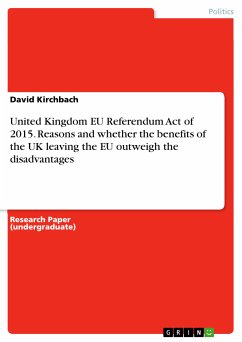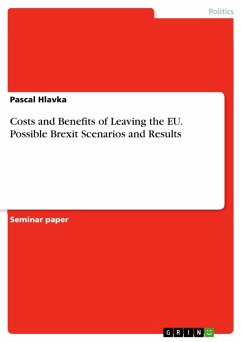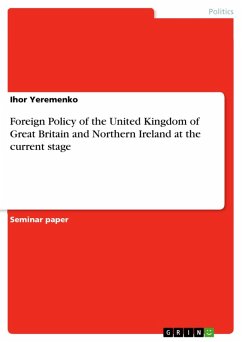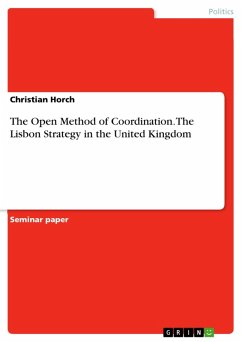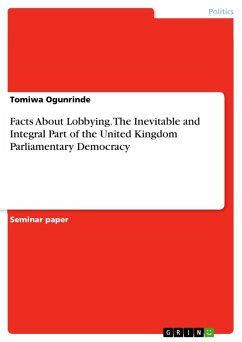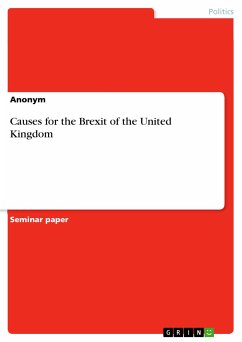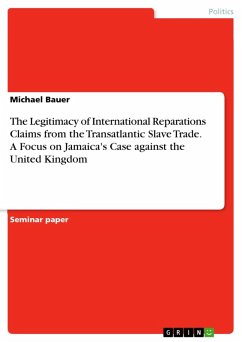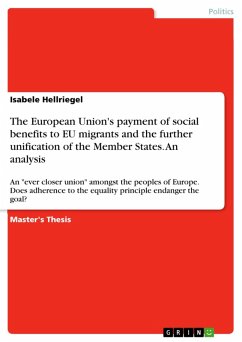Research Paper (undergraduate) from the year 2016 in the subject Politics - International Politics - Topic: European Union, grade: 15, , language: English, abstract: This paper will research the reasons for the result of the referendum, with a focus on the influence of mass media, and whether the benefits of the United Kingdom leaving the European Union outweigh the disadvantages of leaving, against the background of the consequences that might follow with the decision of the UK. After the Second World War ended in 1945, many cities, towns and villages across Europe were completely destroyed by aerial bombing and heavy artillery, which led all in all to a huge suffering of the citizens all over Europe. A common expression after 1945 was "Never again", symbolising the desire to prevent another world war and such a devastation all over the globe, but also especially in Europe. To make this idea come true, the six European countries Belgium, France, Germany, Italy, Luxembourg and the Netherlands founded the 'European Coal and Steel Community' in 1950, which was the beginning of a growing supranational confederation later becoming the guarantee of peace between the European countries on their own continent, today known as 'European Union'. Back in 1973, when the 'European Communities' still was in its initial stage, the United Kingdom, containing of England, Wales, Scotland and Northern Ireland, officially joined the 'EC', raising the number of member states to nine. The European Union has since then changed a lot, allowing not only goods to be transported inside the EU without customs costs, but also allowing the citizens of the member states to move around without any border restrictions. Despite these and further advantages, many inhabitants of the UK felt uncomfortable with the EU charing billions of pounds a year for imposing too many rules and restrictions on the UK's business, which is not worth the benefits in their opinion. In addition, many citizens shared the opinion that the UK should take back full control of its borders and reduce the number of immigrants on their island. Consequently, David Cameron, the Prime Minister of the UK, introduced the EU Referendum Act in 2015, which included a plebiscite to decide whether the UK will stay in the European Union or not. The vote itself took place on the 23rd June 2016 in the United Kingdom, having had the result of about 52% of the voters having voted to leave the European Union, forming the absolute majority.
Dieser Download kann aus rechtlichen Gründen nur mit Rechnungsadresse in A, B, BG, CY, CZ, D, DK, EW, E, FIN, F, GR, HR, H, IRL, I, LT, L, LR, M, NL, PL, P, R, S, SLO, SK ausgeliefert werden.

